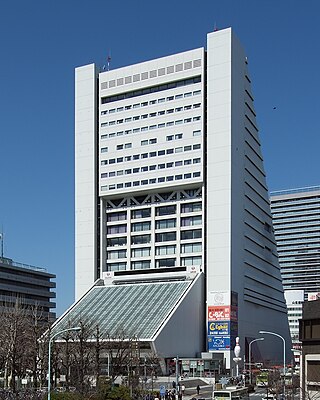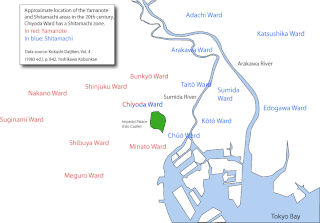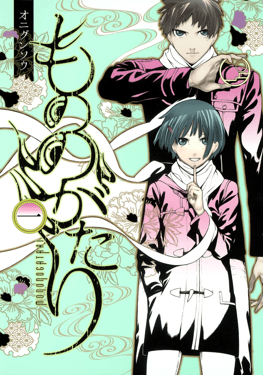The annual Tokyo Summer Festival, organized by the Arion-Edo Foundation in cooperation with Asahi Shimbun, has been thought up in 1985 by Kyoko Edo (pianist), Maki Ishii (composer) and Tashi Funayama (musicologist), who joined hands to plan a truly international music festival in Tokyo at a time when there was no such event in Japan. This epoch-making festival is the first in Japan planned and directed by professional musicians. The festival takes place under a different theme each year and invites outstanding artists from all around the world in order to let the public discover various styles of music, from classical to world music. Many of the participating artists perform for the 1st time in Japan.
1985: Music, Exoticism and Orientalism - The Maturity and Transformation of Occidental Music-
1986: Pan-nationalist Music - Focusing on Russian/Soviet Music
1987: Creation and Performance- Beyond Ethnicity Focusing on the Music of the U.S.A.
1988: Paris - Paris
1989: German Romanticism - Development and Countermovement - Dawn for Berlin
1990: The Gypsies and European Music
1991: Sound Across the Continents and Oceans - Music from Abroad and the Culture of Japan
1992: Italy - well-spring of voice and sound -
1993: Visions of India
1994: Transformation and New Perspectives
1995: Patterns of Laughter - Masques, Music, and Buffoonery -
1996: The Harmony of the Spheres I: The Woman Ascending
1997: The Harmony of the Spheres II: Myths and Legends
1998: The Ballets Russes of Diaghilev and the Twentieth Century - Provocateur in Arts -
1999: Performance: Art and Artistry
2000: Camera! Action! Music! (Music and Cinema)
2001: Voices
2002: Music and Literature
2003: Ritual, Nature, and Music
2004: The 20th Anniversary of the Tokyo Summer Festival
2005: Cosmos, Music, and Heart
2006: Songs of the Earth / Music in the Streets
2007: Towards the Islands - Sounds across the Sea
2008: Forest Echoes / Desert Voices
「森の響き・砂漠の声」
Forest – filled with vitality, spirits and shrubs since all times, graceful spots unreachable by daylight, a habitat for humans and spirits. Obscure and mysterious places in the midst of forests are an abundant source of energetic sounds. Desert – although life withers on the arid soil, great civilizations have made the desert their home for thousands of years. The silence of the desert sharpens mind and ears of its inhabitants and creates strong and colorful music. At a first glance deserts and forests are completely opposite places, but on a global scale they are closely linked by the hydrologic cycle. This year's Tokyo Summer Festival takes you to a musical journey through noisy forests and silent deserts. Performers: Egberto Gismonti, Tokyo Philharmonic Orchestra, Ryusuke Numajiri, Algerian Tuareg musicians, Karaja Indians, Toshita Kagura Preservation Association, Shota Nakano, Fumiko Nomura,...
「島へ - 海を渡る音」 Since ancient times, islands floating all over the world's oceans and seas have been the passage route for traders, explorers and travelers. With the coming and going of the peoples, traces of different cultures also passed by the islands that became an encounter place where native and overseas cultures blend together. This year's 23rd Tokyo Summer Festival is rowing through space and time to portray the musical mosaic of various islands from around the globe. Musicians performing at the 23rd Tokyo Summer Festival: Dan Ettinger, Shota Nakano, Tokyo Philharmonic Orchestra, Johann Johannsson, Fujiko Nakaya, Frisner Augustin and La Troupe Makandal, Music Cultural Club, Bi Kidude, Vicente Feliu, Lazaro Garcia, Augusto Blanca, and many more!

Tokyo, officially the Tokyo Metropolis, is the capital of Japan and one of the most populous cities in the world with a population of over 14 million residents as of 2023. The Tokyo metropolitan area, which includes Tokyo and nearby prefectures, is the world's most-populous metropolitan area with 40.8 million residents as of 2023, and is the second-largest metropolitan economy in the world after New York City, with a 2023 gross metropolitan product estimated at US$2 trillion.

In Japan, music includes a wide array of distinct genres, both traditional and modern. The word for "music" in Japanese is 音楽 (ongaku), combining the kanji 音 on (sound) with the kanji 楽 gaku. Japan is the world's largest market for music on physical media and the second-largest overall music market, with a retail value of US$2.7 billion in 2017.

Nakano is a special ward in the Tokyo Metropolis in Japan. The English translation of its Japanese self-designation is Nakano City.

Seiji Ozawa is a Japanese conductor known for his advocacy of modern composers and for his work with the San Francisco Symphony, the Toronto Symphony Orchestra, the Vienna State Opera, and the Boston Symphony Orchestra, where he served as music director for 29 years. He is the recipient of numerous international awards.

Yumiko Shiina, known by her stage name Ringo Sheena, is a Japanese singer, songwriter and musician. She is also the founder and lead vocalist of the band Tokyo Jihen.
Fiji is an island nation in the Pacific Ocean. Though geographically Melanesian, the music of Fiji is more Polynesian in character. Nevertheless, Fijian folk styles are distinct in their fusion of Polynesian and Melanesian traditions. Folk music is dominated by vocal church music, as well as dances characterized by rich and dull harmony and complex percussion made from slit drums or natural materials, such as drums.
Suijin is the Shinto god of water in Japanese mythology. The term Suijin refers to the heavenly and earthly manifestations of the benevolent Shinto divinity of water. It also refers to a wide variety of mythological and magical creatures found in lakes, ponds, springs, and wells, including serpents, and the flesh-eating kappa. Mizu no kamisama, Mizugami, or Suijin, is popularly revered and worshipped in temples and continues to influence Japanese culture. Suijin is also known as the water god, Suiten and Sui-ō/Suiu.
Ryūkōka is a Japanese musical genre. The term originally denoted any kind of "popular music" in Japanese, and is the sinic reading of hayariuta, used for commercial music of Edo Period. Therefore, imayō, which was promoted by Emperor Go-Shirakawa in the Heian period, was a kind of ryūkōka. Today, however, ryūkōka refers specifically to Japanese popular music from the late 1920s through the early 1960s. Some of the roots of ryūkōka were developed from Western classical music. Ryūkōka ultimately split into two genres: enka and poppusu. Unlike enka, archetypal ryūkōka songs did not use the kobushi method of singing. Ryūkōka used legato. Bin Uehara and Yoshio Tabata are considered to be among the founders of the modern style of kobushi singing.

Nii-jima (新島) is a volcanic Japanese island administered by the Tokyo Metropolitan Government. It is one of the Izu Seven Islands group of the seven northern islands of the Izu archipelago, and is located approximately 163 kilometres (101 mi) south of Tōkyō and 36 kilometres (22 mi) south of Shimoda Shizuoka Prefecture. The island is the larger inhabited component of the village of Niijima Village, Ōshima Subprefecture of Tokyo Metropolis, which also contains the neighboring island of Shikine-jima and the smaller, uninhabited Jinai-tō. Nii-jima is also within the boundaries of the Fuji-Hakone-Izu National Park.
Serenade to Music is an orchestral concert work completed in 1938 by English composer Ralph Vaughan Williams, written as a tribute to conductor Sir Henry Wood. It features an orchestra and 16 vocal soloists, with lyrics adapted from the discussion about music and the music of the spheres from Act V, Scene I from the play The Merchant of Venice by William Shakespeare. Vaughan Williams later arranged the piece into versions for chorus and orchestra and solo violin and orchestra.
Michiru Oshima is a Japanese composer and arranger. She works on music in wide range of areas, such as anime, films, television series, video games and concerts. She has written scores for over 100 movies, over 200 television titles, video games, various types of events, concerts, theaters, among others. Ōshima is one of the most prolific living composers for film, anime and video game. She has released over 300 CDs including film soundtracks and artist CDs. Her works include composition for Godzilla vs. Megaguirus, Godzilla Against Mechagodzilla, and Godzilla: Tokyo S.O.S. movies and scores for numerous anime television series, including Fullmetal Alchemist, Fullmetal Alchemist the Movie: Conqueror of Shamballa, Nabari no Ou, Queen Emeraldas, Xam'd: Lost Memories, Arc the Lad, and Weathering Continent. In addition to the soundtracks on Kaiju films and anime music, she has composed music for several video games such as Genghis Khan II: Clan of the Gray Wolf for Super NES, Ico for PlayStation 2, Legend of Legaia for PlayStation and its PlayStation 2 sequel Legaia 2: Duel Saga, Arc the Lad III, Deemo, Midnight Play by the company Tivola based on the art illustrations of Květa Pacovská, and an orchestral arrangement of a Zelda medley for the Wii and GameCube game The Legend of Zelda: Twilight Princess. She was also the composer for a Japanese stage musical adaptation of the classic Hollywood film Roman Holiday. Her latest work includes the composition of several music tracks for the highly acclaimed Chinese espionage thriller film The Message and a 2017 Chinese mystery thriller film The Devotion of Suspect X (film).

Inokashira Park is a park which straddles Musashino and Mitaka in western Tokyo, Japan. Inokashira Pond (井の頭池) and the Kanda River water source, established during the Edo period, are the primary sources of the Kanda River.

Toshio Hosokawa is a Japanese composer of contemporary classical music. He studied in Germany but returned to Japan, finding a personal style inspired by classical Japanese music and culture. He has composed operas, the oratorio Voiceless Voice in Hiroshima, and instrumental music.
Tanabe Hisao Prize was created in 1983 by the Tōyō Ongaku Gakkai, the oldest musicological society of Japan. The prize is named after the musicologist Tanabe Hisao, one of the founding members of the society. The prize is awarded annually to one or several individuals or groups who have published an outstanding work of Asian musicology during the previous year, one that "promotes further research in Asian musicology and contributes to Japanese scholarship." It is generally considered the most prestigious award in the field of Asian musicology awarded in Japan.

Nakano Sunplaza, formerly Nakano Sun Plaza, is a hotel in Nakano, Tokyo. The hotel includes a concert hall, the Nakano Sunplaza Hall. Built in 1973, this concert hall seats 2,222 people. The current facility closed on July 2, 2023. A music festival, "Goodbye Nakano Sunplaza Music Festival" was held from May 3rd to the closing date of July 2nd.

Yamanote (山の手) and Shitamachi (下町) are traditional names for two areas of Tokyo, Japan. Yamanote refers to the affluent, upper-class areas of Tokyo west of the Imperial Palace. While citizens once considered it as consisting of Hongo, Kōjimachi, Koishikawa, Ushigome, Yotsuya, Akasaka, Aoyama and Azabu in the Bunkyō, Chiyoda, Shinjuku, and Minato wards, its size has grown to include the Nakano, Suginami and Meguro wards. Shitamachi is the traditional name for the area of Tokyo including today the Adachi, Arakawa, Chiyoda, Chūō, Edogawa, Katsushika, Kōtō, Sumida, and Taitō wards, the physically low part of the city along and east of the Sumida River.

Sleeper is a double album by Keith Jarrett's "European Quartet" recorded on April 16, 1979 in Tokyo, and released on ECM 33 years later in 2012.
Tokyo Global Concert is a music event aimed at the promotion of arts, culture and international development held in Tokyo, Japan inviting renowned opera singers from around the world.

"Summer Suspicion" is the debut single by Japanese band S. Kiyotaka & Omega Tribe released by VAP on April 21, 1983. Produced by Koichi Fujita and written by Tetsuji Hayashi and Chinfa Kan, the song is made to have a "domestic Japanese melancholy" by the request of Fujita after rejecting two previous songs by Hayashi and Kan. It peaked at 9th place on the Oricon Singles Chart in 1983.

Malevolent Spirits: Mononogatari is a Japanese manga series written and illustrated by Onigunsou. It was first serialized in Shueisha's seinen manga magazine Miracle Jump from April 2014 to December 2015, and it was later transferred to Ultra Jump where it continued from January 2016 to June 2023. An anime television series adaptation by Bandai Namco Pictures was broadcast from January to March 2023. A second season aired from July to September 2023.